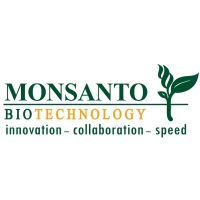Will Monsanto Win the Genetic Food Fight in California as It Did in Congress?

Although 93% of Americans favor labeling genetically modified food (GMO), Congress followed the lead of agriculture-biotech giant Monsanto last week in rejecting legislation similar to a bill proposed in California.
The legislation, proposed by independent Vermont Senator Bernie Sanders as an amendment to the sprawling Senate farm bill, wasn’t just defeated. It was trounced in a bipartisan 73-26 vote after a vigorous lobbying effort led by Monsanto. Sanders introduced the amendment after proposed legislation in his home state stalled amid fears that the company would sue the state.
California Senators Barbara Boxer and Diane Feinstein voted for the amendment.
Monsanto spent $1.4 million on lobbying in Washington during the first three months of this year, according to OpenSecrets.org, which is on a pace to equal last year’s $6.3 million expenditure. It spent more money on lobbying than any other agribusiness other than Altria, the parent company of Philip Morris.
“Monsanto comes armed with some of the deepest pockets and a bench of influential lobbyists, which makes the coalition's efforts over GMO labeling on behalf of consumers a very tough fight indeed,” says Alex Formuzis, a spokesman for Environmental Working Group.
About 20 other states are considering GMO legislation but California is ahead of the field, having qualified an initiative for the November ballot that would require all food with genetically engineered ingredients be labeled either “Partially Produced with Genetic Engineering” or “May be Partially Produced with Genetic Engineering.” Food and alcohol in restaurants would be exempt, as would food from animals that have been eating the modified ingredients.
If passed, the law would take effect in 2014. Although polls show the public overwhelmingly want to know what is in their food, they are still on the fence about whether genetically modified food is safe. Groups like the Coalition Against the Costly Food Labeling Proposition maintain that supporters of the initiative are simply trying to ban GMO foods by scaring consumers with a “de facto warning label” so organic farmers can gain market share.
Genetically engineered food is already prevalent around the world. In the United States, 95% of sugar beets are genetically engineered, as are 94% of soybeans and 88% of feed corn. The European Union and Japan already require that GMOs be labeled.
–Ken Broder
To Learn More:
Congress' Big Gift to Monsanto (by Tom Philpott, Mother Jones)
Monsanto's Deep Roots In Washington (by Russ Choma, Open Secrets)
Food Fight Is On: Genetic Modification Labels Make the Ballot (by Ken Broder, AllGov)
GMO Label Movement Faces Hurdles in Vermont (by Terri Hallenbeck, Burlington Free Press)
Meet the Corporate Front Groups Fighting to Make Sure You Can't Know What's in Your Food (by Alexis Baden-Mayer and Ronnie Cummins, Alternet)
- Top Stories
- Controversies
- Where is the Money Going?
- California and the Nation
- Appointments and Resignations
- Unusual News
- Latest News
- California Forbids U.S. Immigration Agents from Pretending to be Police
- California Lawmakers Urged to Strip “Self-Dealing” Tax Board of Its Duties
- Big Oil’s Grip on California
- Santa Cruz Police See Homeland Security Betrayal in Use of Gang Roundup as Cover for Immigration Raid
- Oil Companies Face Deadline to Stop Polluting California Groundwater





